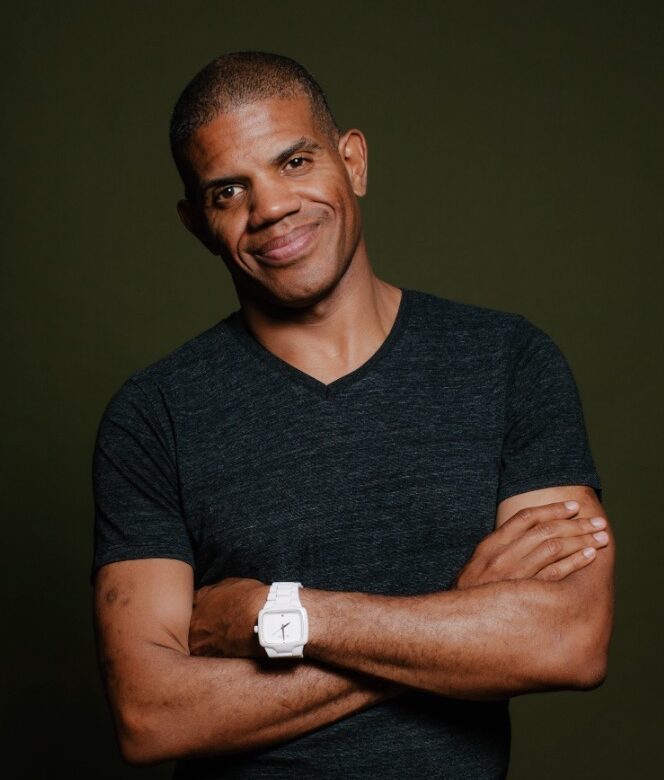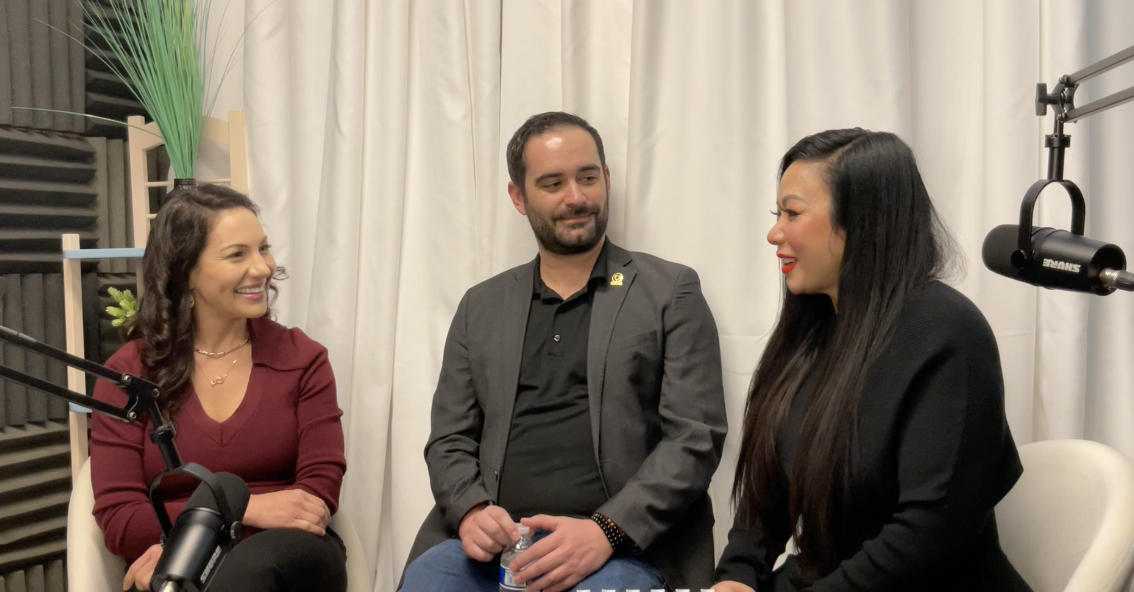In our latest episode of Let’s Get CLEAR, we had an enlightening conversation with Dan Wilkewitz about overcoming challenges and achieving greatness through passion, suffering, and sacrifice. Dan is a multifaceted professional passionate about simplifying complex processes for clients across industries. Today, we’ll delve deeper into Dan’s insights about the true nature of passion and the roles suffering and sacrifice play in achieving great things.
Listent to Let’s Get CLEAR podcast now!
In our latest episode of Let’s Get CLEAR, we had an enlightening conversation with Dan Wilkewitz about achieving greatness through passion, suffering, and sacrifice. Dan is a multifaceted professional passionate about simplifying complex processes for clients across industries. Today, we’ll delve deeper into Dan’s insights about the true nature of passion and the roles suffering and sacrifice play in achieving great things.
Achieving greatness is often romanticized as a journey filled with enthusiasm and triumph. However, the path to true accomplishment is rarely straightforward. It involves passion, which includes a willingness to suffer and make sacrifices. Here are five steps to overcoming challenges on this arduous but rewarding journey.
The journey to greatness is intertwined with passion, suffering, and sacrifice. By embracing the true meaning of passion, recognizing the importance of sacrifice, developing consistent habits, setting realistic goals, and practicing self-compassion, you can navigate challenges and stay on the path to success. Remember, greatness is not achieved overnight but through persistent effort and dedication.
By following these five steps, you can transform challenges into opportunities for growth and move closer to your goals. Stay committed, keep your eyes on the prize, and remember that the sacrifices you make today will lead to the accomplishments of tomorrow. Embrace the journey, and let your passion drive you toward achieving greatness.

1. Embrace the True Meaning of Passion
Understanding Passion: Passion is more than a strong, positive feeling. The word’s roots in ancient Greek and Latin translate to suffering and enduring. To truly embrace passion, recognize that it involves perseverance and resilience in the face of hardships. Passion isn’t merely about what excites us but what we are willing to endure and sacrifice for.
(Check out Episodes 18 and 19 with Lynsey Lee for a closer look at perseverance and resilience.)
Passion isn’t limited to monumental goals. It can be found in any task or activity that excites you and makes you want to do more. It’s about what occupies your thoughts and what you’re willing to prioritize, even if it seems irrational to others. Passions can evolve, and it’s essential to reassess and realign your efforts to ensure they continue to energize you.
Practical Application: Identify what you are deeply committed to, even if it requires enduring challenges. Reflect on what excites you and makes you willing to make sacrifices. This could be a career, a hobby, or a personal goal you are passionate about despite the difficulties involved.
Let us know what you are passionate about – share your story on X!
2. Recognize the Importance of Sacrifice
Understanding Sacrifice: Sacrifice is about making specific trades. Even the unwillingness to suffer at some level to attain a goal is the sacrifice of achievement. It involves giving up short-term comforts for long-term gains:
Practical Application: Evaluate your habits and identify areas where sacrifices are needed. If you aim to lose weight, forgo unhealthy foods and allocate time for exercise. In relationships, compromise personal desires to nurture and maintain a healthy connection. Remember the bigger picture and ensure your sacrifices align with your long-term objectives.
What are you willing to make sacrifices for? Share your story on LinkedIn!
Example: Olympic athletes sacrifice their comfort and leisure to achieve sports excellence. Similarly, in professional endeavors, individuals might give up other pursuits to focus on their careers. For instance, someone in the real estate industry might prioritize developing marketing and educational communication to improve client experiences, even if it means sacrificing time and effort in other areas
3. Develop Consistent Habits
Building Excellence: Excellence is not a one-time act but a habit formed through repeated actions. As Aristotle said, “We are what we repeatedly do. Excellence, then, is not an act but a habit.” Dan emphasizes the importance of continuous effort and making the right sacrifices. Excellence is built through habitual actions that align with our long-term goals.
Practical Application: Create a routine that supports your goals. For example, dedicate daily time to writing to become a better writer. If fitness is your goal, establish a consistent workout schedule. Small, consistent actions accumulate over time, leading to significant improvements and achievements.
What routine works best for you? Share your findings with us on Threads!
Example: Real estate professionals develop consistent habits to improve clients’ home-buying experiences. By breaking down complex information and creating clear, step-by-step communication, they help clients navigate the often overwhelming process of buying a home. This consistency builds trust and excellence in their field.
4. Set Realistic and Incremental Goals
Bite-Sized Goals: Large, overwhelming goals can lead to procrastination and anxiety. Breaking down your objectives into smaller tasks can make the journey more manageable.
Practical Application: Instead of aiming to lose 50 pounds, focus on losing the first five. Celebrate these small victories and use them as motivation to continue. Micro actions, such as drinking more water or choosing a healthy meal today, are more manageable and contribute to long-term success.
Example: Focus on immediate, actionable steps when tackling large projects or goals. For instance, someone looking to improve their fitness might start by committing to a short daily workout rather than an overwhelming long-term plan. This approach helps build confidence and establishes a foundation for more significant achievements.
5. Practice Self-Compassion and Adjust Expectations
Grace and Self-Compassion: Recognize that the journey to greatness is filled with setbacks and failures. Negative self-talk can be detrimental, so treating yourself with kindness and understanding is essential.
Practical Application: If you encounter a setback, such as missing a workout or indulging in unhealthy food, don’t be overly harsh on yourself. Acknowledge the slip-up and refocus on your goals. Maintaining a positive mindset and adjusting expectations can help you stay motivated and resilient.
Example: Long-distance runners often come from families where running is a passion. However, suppose someone in such a family realizes that running isn’t for them. In that case, they should focus on other activities that bring joy and fulfillment. This self-compassion allows them to pursue their true passions without guilt. Similarly, individuals should give themselves grace when facing setbacks and continue to focus on their long-term goals.
The journey to greatness is intertwined with passion, suffering, and sacrifice. By embracing the true meaning of passion, recognizing the importance of sacrifice, developing consistent habits, setting realistic goals, and practicing self-compassion, you can navigate challenges and stay on the path to success. Remember, greatness is not achieved overnight but through persistent effort and dedication.
By following these five steps, you can transform challenges into opportunities for growth and move closer to your goals. Stay committed, keep your eyes on the prize, and remember that the sacrifices you make today will lead to the accomplishments of tomorrow. Embrace the journey, and let your passion drive you toward achieving greatness.
Q&A with Dan Wikewitz
Describe what you do and why you are so passionate about this topic.
I design and produce educational and marketing communication for the real estate and mortgage industries to improve process and end-user experience. I’m passionate about this work because I believe in making complex information accessible and enhancing people’s understanding and interactions within these industries.
What did you do before?
My first career was as a radio disc jockey at KBCO. I have also been, and in some ways still am, a teacher, a graphic designer, and a filmmaker.
Discuss the challenges and benefits of working in your industry. Challenges include distilling complicated information into packages that people can understand. The benefits are the satisfaction of simplifying these complexities and improving others’ experiences.
What are some of the most challenging obstacles this industry needs to overcome?
The industry’s most challenging obstacles include the complexity of transactions and the numerous choices that individuals must make.
What is one tip or advice you would like to pass on to listeners/readers? Everyone has their own story, a mix of non-fiction and fiction. Always remember that


Follow Us on Social Media: Instagram:/Cliintel/ Facebook:/Cliintel LinkedIn:/company/cliintel X (Twitter):/cliintel Threads: /@clearly_different_VC

















